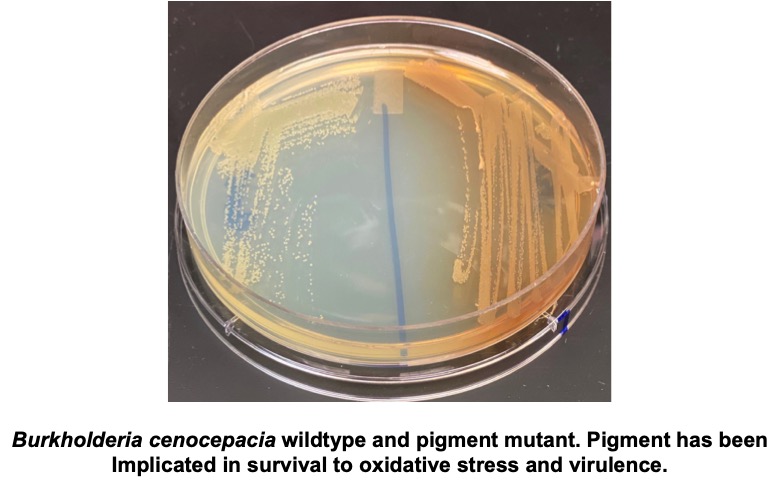
The Burkholderia cepacia complex (Bcc) is a group of Gram-negative bacteria that cause life-shortening lung infections in individuals with cystic fibrosis (CF) and chronic granulomatous disease (CGD). We are currently testing a panel of Burkholderia cenocepacia mutants to determine which mutants do not cause disease in both a CF and a CGD mouse model of infection; strains with mutations in genes essential for virulence are being constructed and characterized. The long-term goal of this study is to identify potential targets in Bcc for the development of novel antimicrobials, inhibitors, and immunotherapeutic intervention to protect these vulnerable patient populations.